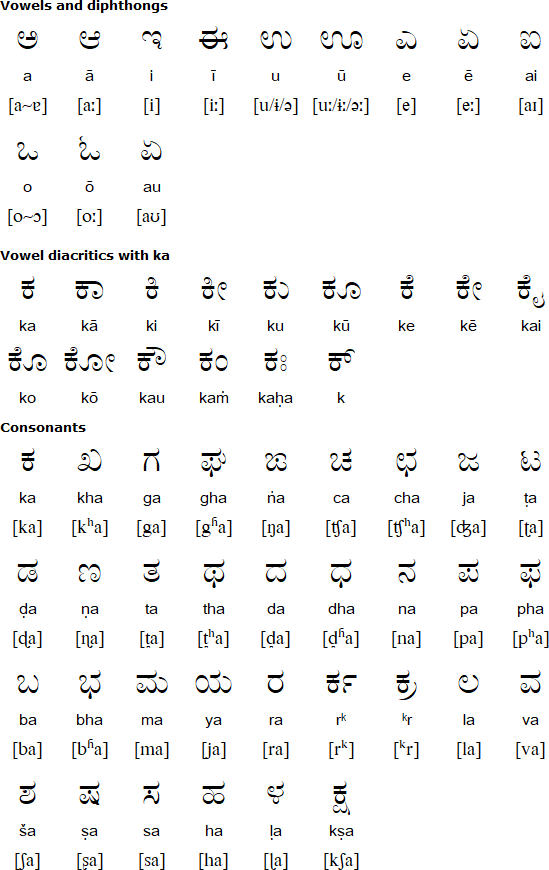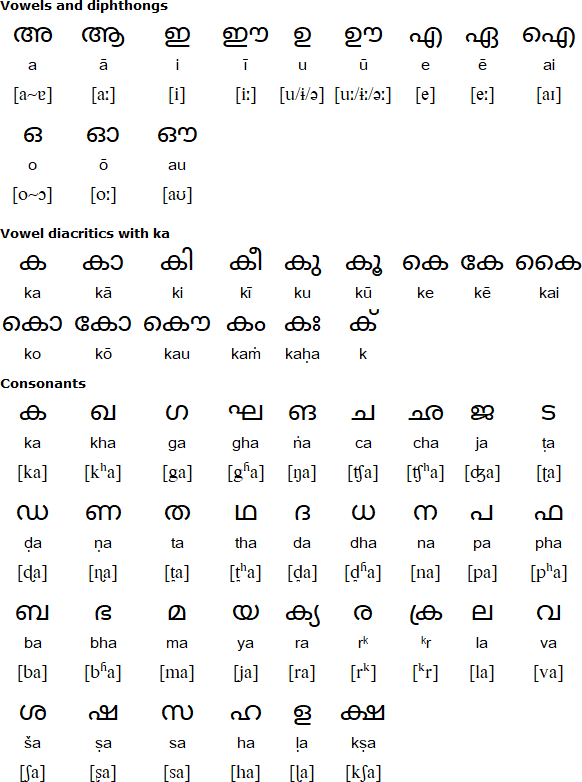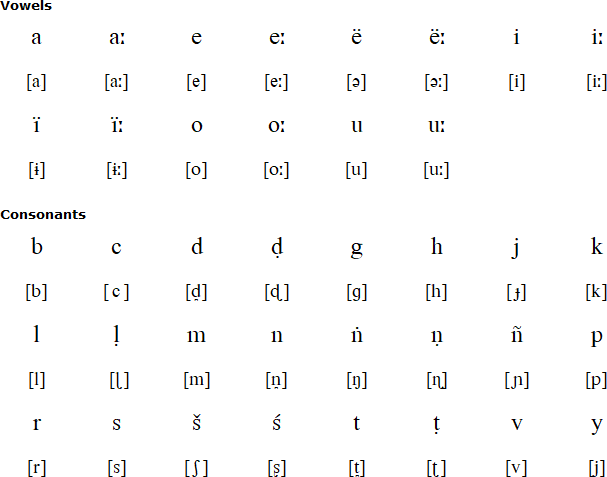Kodava is a Dravidian language spoken by about 114,000 people in Karnataka state in southern India, in partcular in the district of Kodagu, and also in the Bengaluru, Dakshina Kannada and Mysuru districts. In 2011 there were about 114,000 speakers of Kodava, which is also known as Coorg, Coorgi Kodava, Kadagi, Khurgi, Kodagu, Kotagu, Kurja or Kurug.
There are two dialects of Kodava: Mendele, which is spoken in Northern and Central Kodagu, and Kiggat, which is spoken in Kiggat naadu in Southern Kodagu.
Kodava was formerly considered a dialect of Kannada, however in the early 20th century linguists recognized it as a separate language. It is closely related to Tamil, Tulu, Kannada and Malayalam.
A way to write Kodava with the Kannada script was developed by R.A. Cole and appears in his book An elementary grammar of the Coorg language, which was published in 1867.
Other ways to write Kodava with the Kannada, Malayalam and Latin alphabets have been developed. A number of other scripts for Kodava have also been created, including the Muthanna script, which was developed in 1970 by Dr. I M Muthanna, a writer, scholar and translator from Kodagu, and the Coorgi-Cox alphabet, which was developed in 2005 by a German linguist, Gregg M. Cox. The Muthanna script was adopted as the official script for Kodava by the Karnataka Kodava Sahitya Academy in 2022, and renamed Kodava Lipi ('Kodava script').
The most important piece of Kodava literature, a collection of folksongs and traditions known as Pattole Palame, was published in 1924 by Nadikerianda Chinnappa.

Source: https://www.scribd.com/document/318720246/An-Elementary-Grammar-of-the-Coorg-Language

This is one possible way to write Kodava with the Latin alphabet. Other spellings systems are available.

Download alphabet charts for Kodava (Excel)
Details of Kodava alphabets provided by Wolfram Siegel (PDF)

Source: https://www.facebook.com/watch/?v=1467333553812233
Information about Kodava | Kodava Lipi | Coorgi-Cox alphabet | Numbers
Information about Kodava
http://en.wikipedia.org/wiki/Kodava_language
https://fr.wikipedia.org/wiki/Kodagu_(langue)
https://www.ethnologue.com/language/kfa
Kodagu news
http://kodagunews.com/
Badaga, Brahui, Dhundari, Gondi, Irula, Jatapu, Kannada, Kodava, Kolam, Konda, Koya, Kurukh, Malayalam, Malto, Mukha Dora, Ravula, Sankethi, Savara, Sunuwar, Suriyani Malayalam, Tamil, Telugu, Toda, Tulu, Yerukula
Kannada, Kodava, Konkani, Lambadi, Sankethi, Tulu
Kodava, Konkani, Malayalam, Ravula
Page last modified: 13.02.25
[top]
You can support this site by Buying Me A Coffee, and if you like what you see on this page, you can use the buttons below to share it with people you know.

If you like this site and find it useful, you can support it by making a donation via PayPal or Patreon, or by contributing in other ways. Omniglot is how I make my living.
Note: all links on this site to Amazon.com, Amazon.co.uk
and Amazon.fr
are affiliate links. This means I earn a commission if you click on any of them and buy something. So by clicking on these links you can help to support this site.
[top]